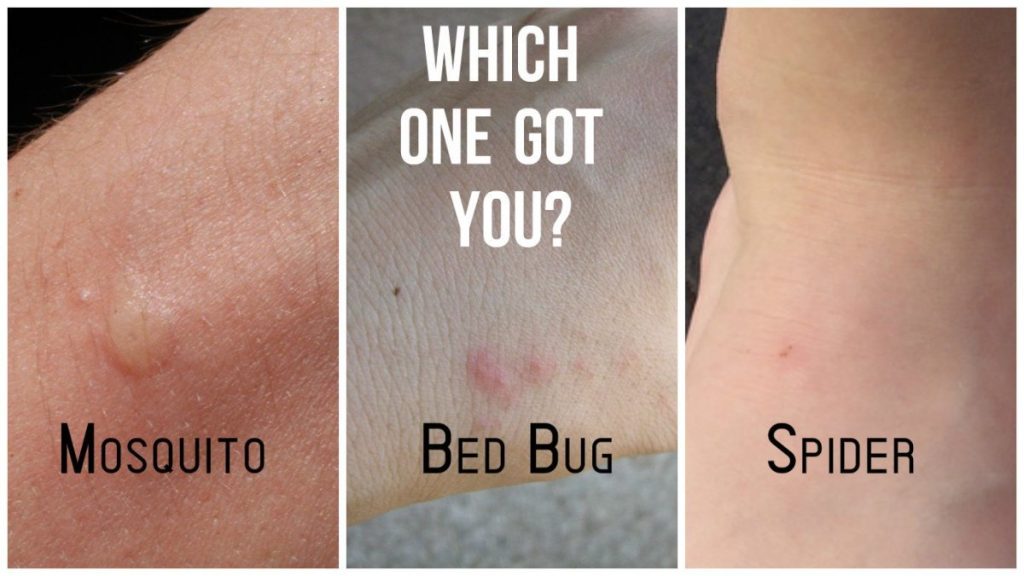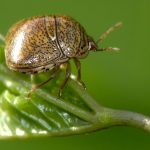As a husband, I’ve often asked myself “why do bed bugs bite me and not my wife?”. It’s a mystery that I’m sure many couples have pondered. After all, why should one person be the target of these pesky critters while the other is spared? We decided to look into this conundrum and uncover the mystery of bug bites.
What are Bed Bugs?
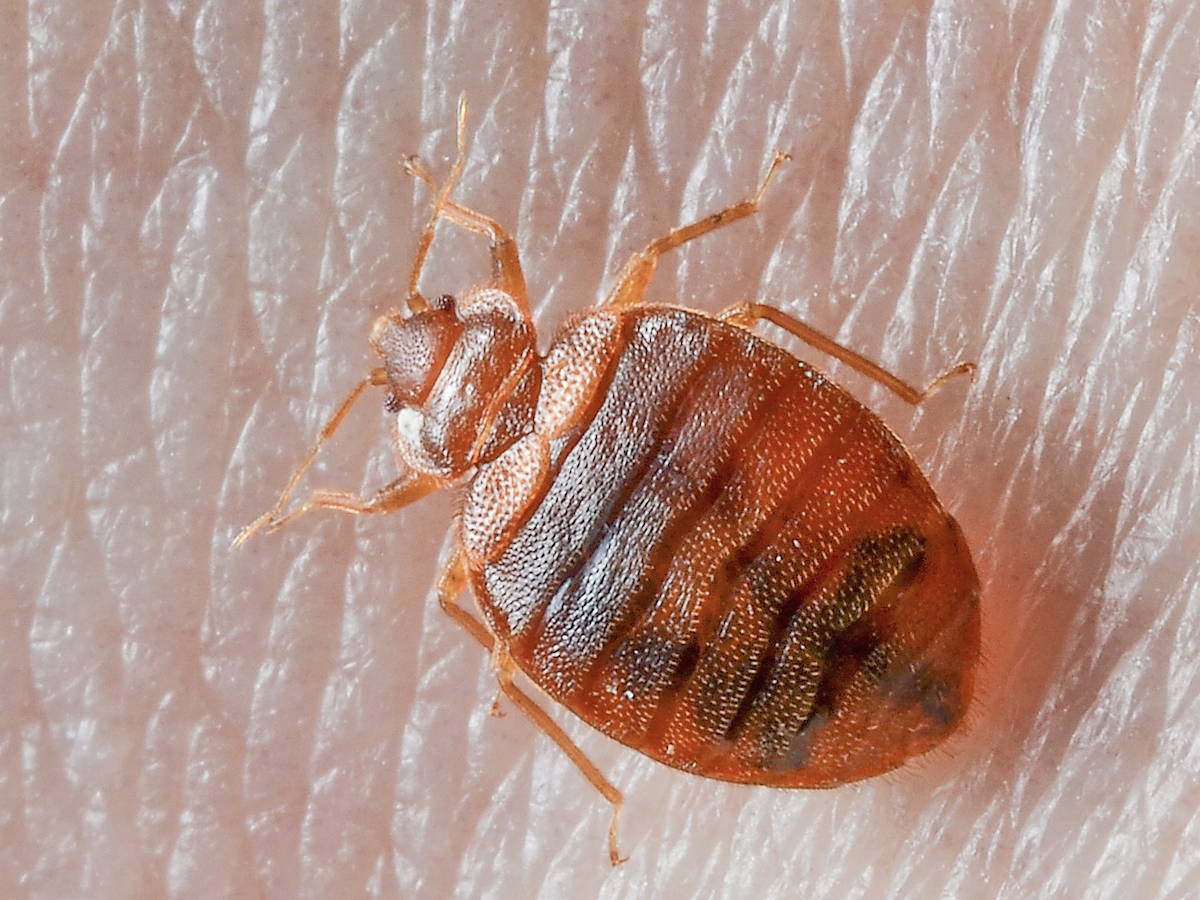
Bed bugs are small, flat, wingless insects that feed on blood from humans or animals. They are reddish-brown in color, have segmented abdomens with microscopic hairs, and have a pair of antennae. They range in size from 1mm to 7mm (roughly the size of Lincoln’s head on a penny).
Bed bugs are not known to spread disease, but they can cause other health issues, such as allergic reactions, skin rashes, psychological effects, and insomnia. They can also cause anemia in some cases.
Bed bugs are typically found in cracks and crevices of beds, mattresses, furniture, walls, and floors. They come out at night to feed on their host’s blood, and then hide during the day.
| Characteristic | Description |
|---|---|
| Size | 1mm to 7mm (roughly the size of Lincoln’s head on a penny) |
| Appearance | Reddish-brown in color, segmented abdomens with microscopic hairs, and a pair of antennae |
| Disease Transmission | Bed bugs are not known to spread disease |
| Habitat | Cracks and crevices of beds, mattresses, furniture, walls, and floors |
| Feeding Habits | Come out at night to feed on their host’s blood, and then hide during the day |
How Do Bed Bugs Bite?
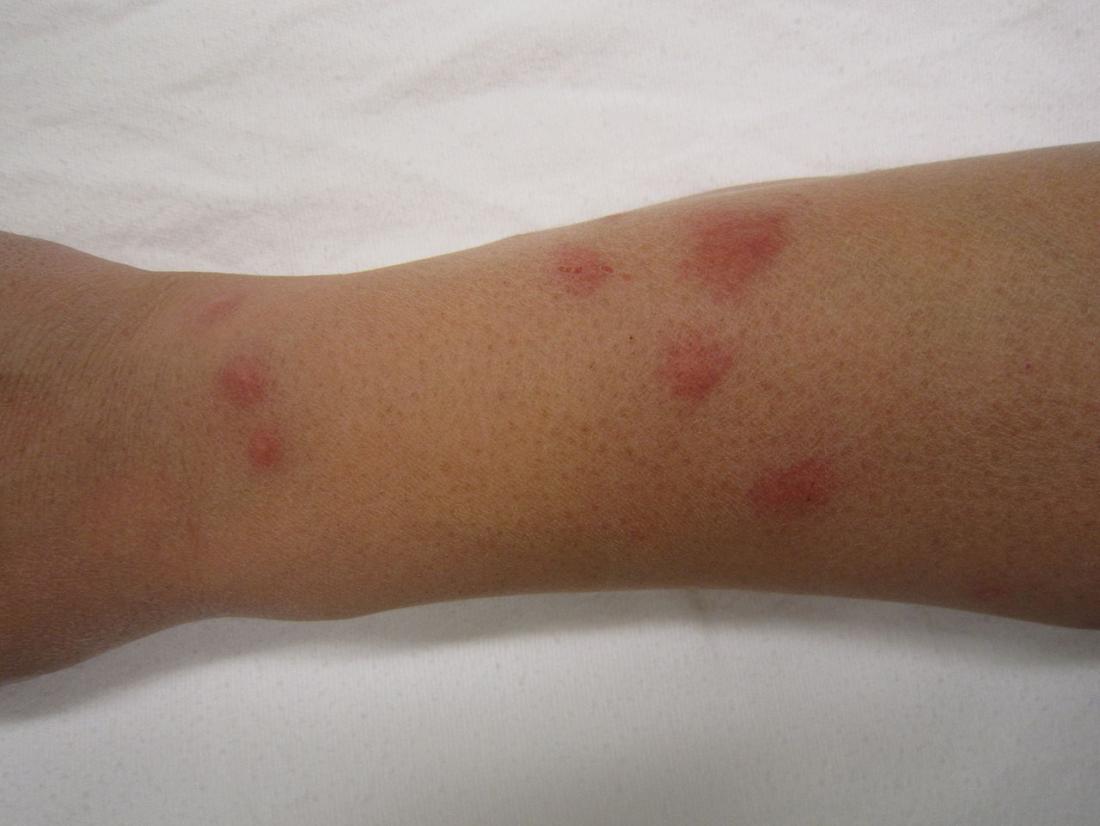
Bed bugs feed on human blood and use specialized mouthparts to puncture the skin and draw out a blood meal. During the feeding process, bed bugs inject saliva into the skin to prevent clotting. This saliva can cause an allergic reaction, resulting in itching and red welts. Bed bugs can feed up to 10 minutes before they become full and retreat.
Bed bugs are attracted to the carbon dioxide we exhale, so they will typically feed on those who are sleeping. The bites are often found in a line or a cluster of several bites near each other. The bite can be located anywhere on the body, but they are most common around the neck, arms, and hands.
My husband may not be getting bitten by bed bugs because they’re not attracted to him. He may be sleeping in a different area of the bed, or not exhaling as much carbon dioxide. Bed bugs can sense temperature and movement, so if he’s not as warm or isn’t moving as much, bed bugs may be avoiding him.
Who is Most at Risk of Bed Bug Bites?
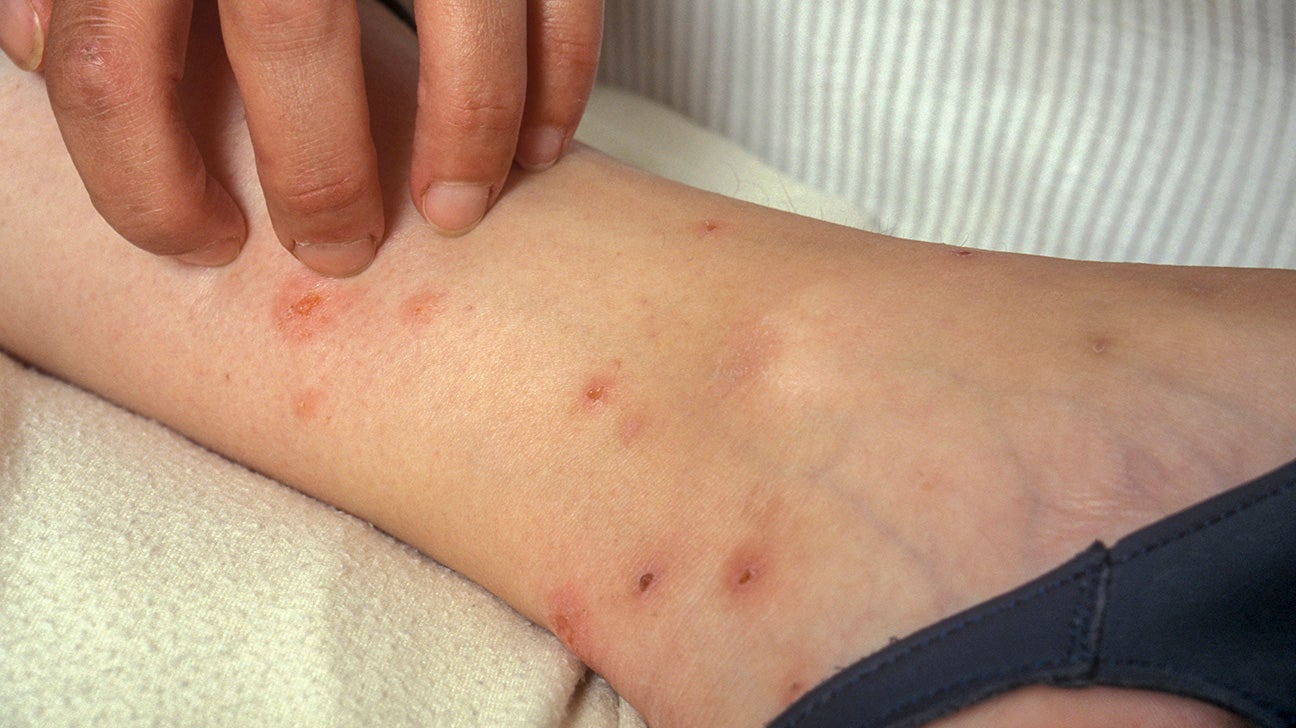
Bed bug bites are not always the same for everyone. Some people are more prone to bed bug bites than others. Generally, people who travel frequently, who stay in hotels and hostels, or who live in multi-unit dwellings are at greater risk for bed bug bites. Older people and young children are also more at risk of bed bug bites as their skin is generally more delicate and fragile. People who are immunocompromised are also more likely to be bitten by bed bugs.
| Group | Risk of Bed Bug Bites |
|---|---|
| People who travel frequently | High |
| People who stay in hotels and hostels | High |
| People who live in multi-unit dwellings | High |
| Older people | Moderate |
| Young children | Moderate |
| People who are immunocompromised | High |
Therefore, it is possible that I am more at risk of bed bug bites than my husband, due to my frequent travels or my age. It is important to note that bed bug bites can affect anyone, regardless of age or travel habits. The best way to protect myself and my family from bed bug bites is to take preventative measures, such as regularly inspecting our beds, mattresses, and linens for signs of bed bugs.
Why Do Bed Bugs Bite Some People and Not Others?
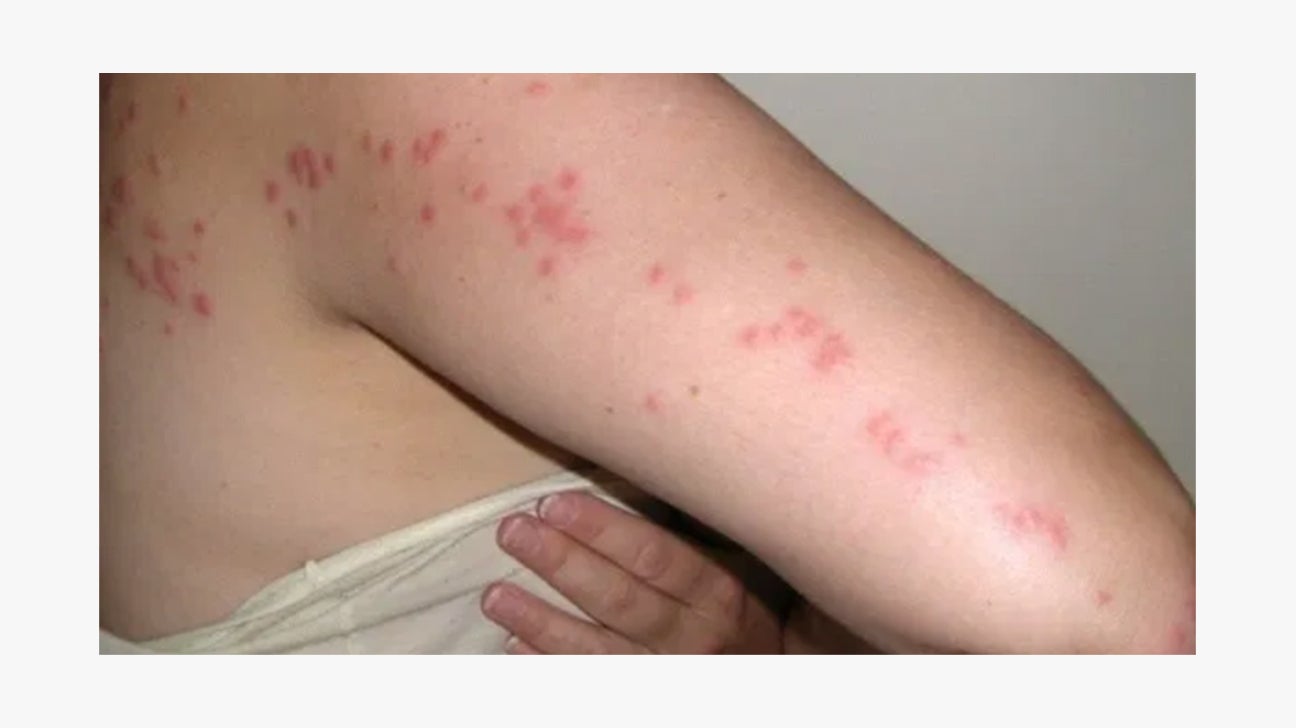
Bed bugs don’t discriminate – they will bite anyone – but why do they choose to bite some people more than others? It turns out that the reason is related to the individual’s blood type and the attractiveness of their body chemistry to bed bugs. Bed bugs are attracted to different body temperatures and the amount of carbon dioxide a person produces. For example, if I have a higher body temperature than my wife, then the bed bugs might be more attracted to me and bite me more often. Additionally, if I produce more carbon dioxide than my wife, the bed bugs might also be more attracted to me.
Finally, people with type O blood are more likely to be bitten by bed bugs than those with other blood types. This is because bed bugs are attracted to type O blood more than other types. For example, if I have type O blood and my wife has type A blood, then the bed bugs might be more likely to bite me than her.
It’s also important to note that bed bugs are not only attracted to humans. They can also feed on other animals, such as cats and dogs, so it’s important to make sure that your home is free from other pests.
In conclusion, bed bugs bite some people more than others because of their individual body chemistry, body temperature, and blood type. People with type O blood are more likely to be bitten by bed bugs than those with other blood types. It’s important to eliminate other pests from your home in order to prevent bed bug infestations.
Can Bed Bugs Bite Through Clothing?
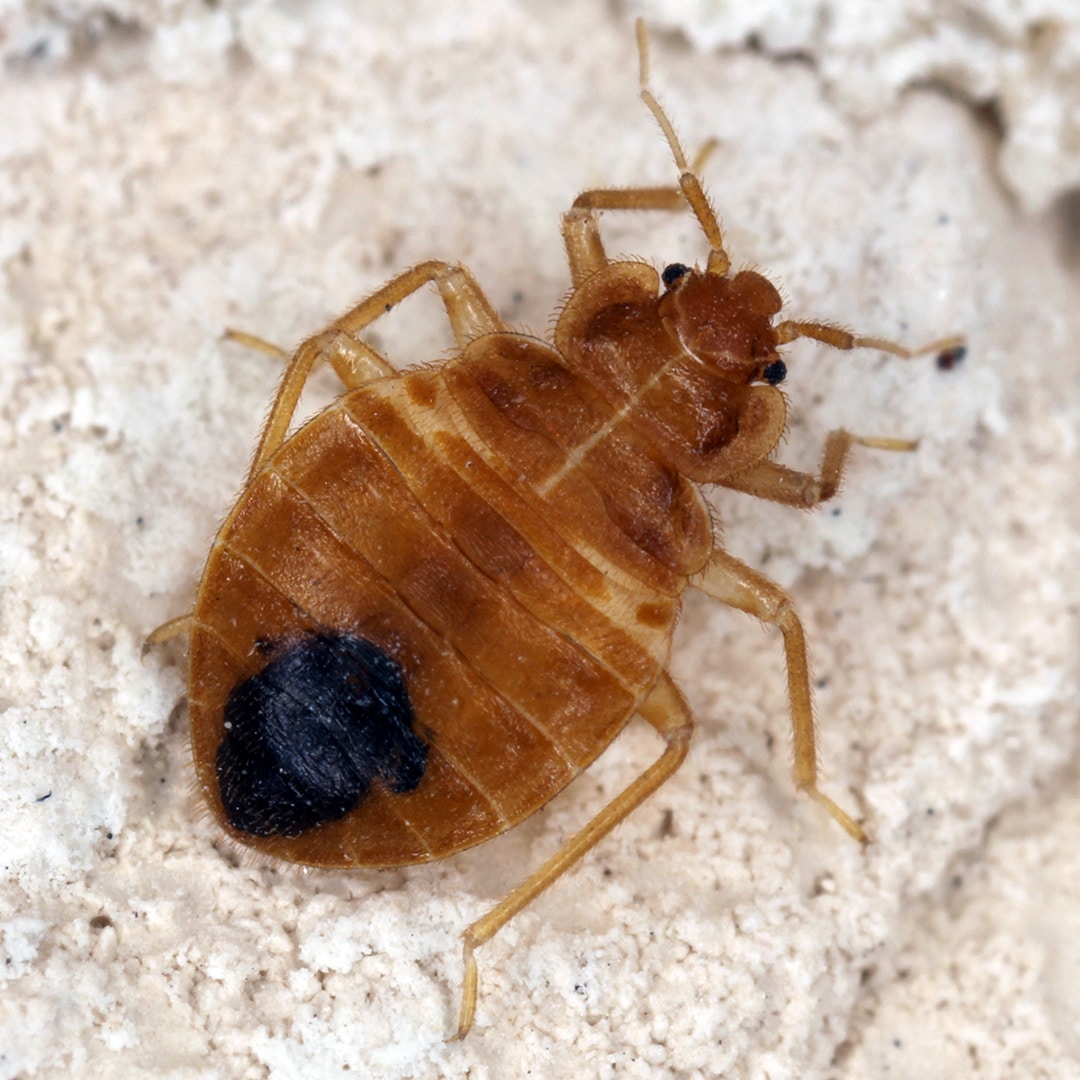
| Type of Clothing | Bed Bugs’ Ability to Bite Through |
|---|---|
| Thin | Yes |
| Thick | No |
Bed bugs can bite through thin clothing like shirts, pants, and other lightweight fabrics. However, they cannot bite through thick clothing, such as denim jeans and jackets. They are also unable to bite through bed sheets and blankets. To prevent bed bug bites, it is recommended to wear thick clothing when sleeping and to use bedding that is thick, tightly woven, and made of natural fibers.
What are the Signs and Symptoms of Bed Bug Bites?
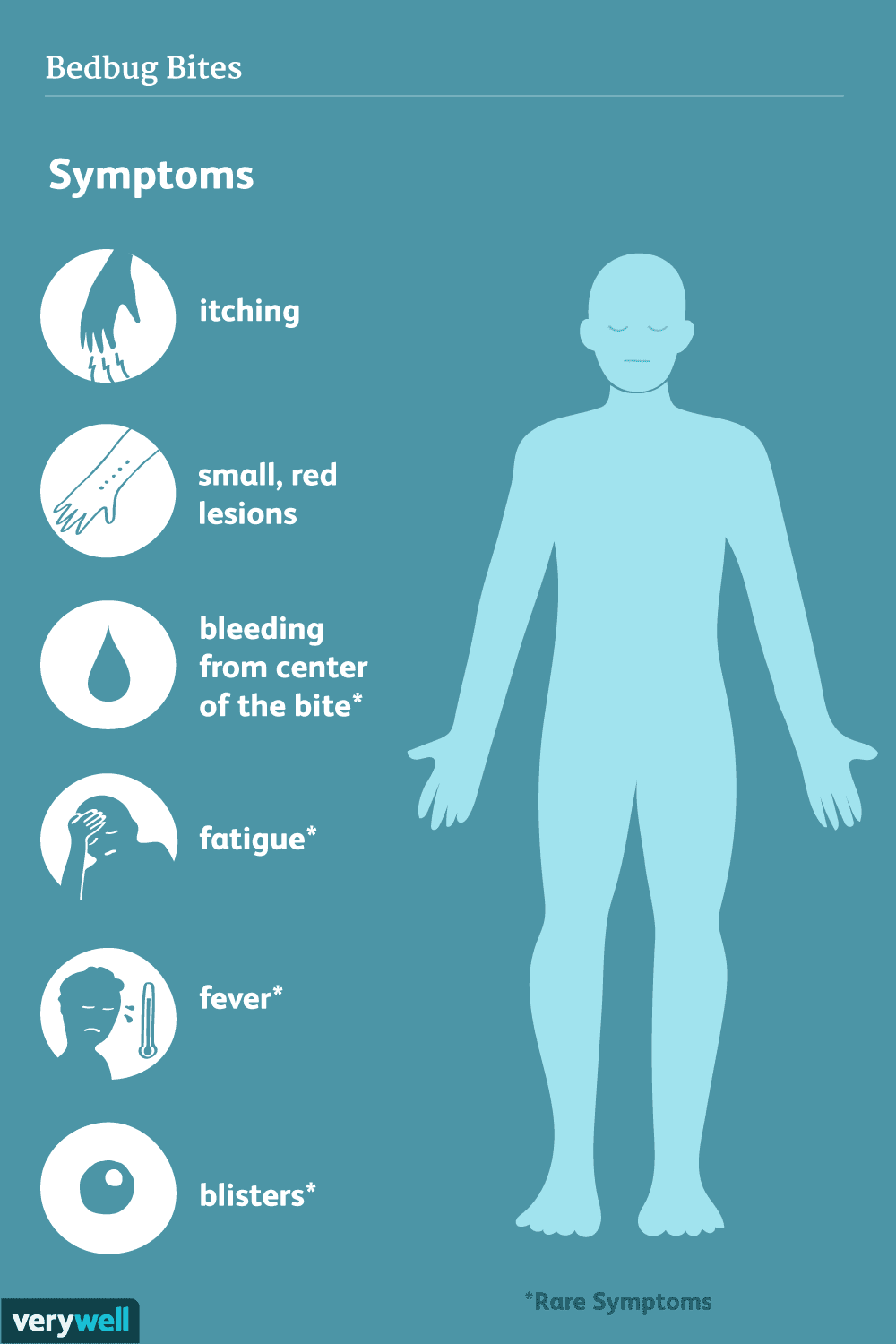
| Signs and Symptoms | Description |
|---|---|
| Itchy Skin | Bed bug bites may cause itching and a burning sensation on the affected area. |
| Reddish Bumps or Rashes | Bed bug bites may appear in clusters of three or more, or as a single bump or rash on the skin. |
| Allergic Reaction | In some people, the bites may cause an allergic reaction, such as hives or difficulty breathing. |
| Fever | In rare cases, severe reactions may cause a fever. |
In some cases, I may not experience any symptoms at all. However, if I am bitten by a bed bug, I may experience one or more of the signs and symptoms listed above.
How Do You Get Rid of Bed Bugs?
- Inspect the mattress and box spring. Bed bugs are usually found in these areas.
- Vacuum the mattress, box spring and bed frame daily. This will remove bed bugs and their eggs.
- Wash bedding and clothes in hot water and dry on hot for at least 20 minutes. This will kill any bed bugs that may be present.
- Use a steamer or heat gun to kill bed bugs. Heat must be at least 120°F.
- Use a residual insecticide to kill any remaining bed bugs. Choose a product that is labeled for use on bed bugs.
- Seal cracks and crevices in the bed frame, headboard and baseboards. This will help prevent bed bugs from entering the room.
- Encase the mattress and box spring in an airtight cover. This will prevent bed bugs from entering the mattress and box spring.
- If the infestation is severe, you may need to call a professional exterminator. They have the tools and knowledge to get rid of bed bugs quickly and effectively.
How Can You Prevent Bed Bugs?
The first step to preventing bed bugs is to identify any infestations early. You should inspect your bedding, bed frame, and any furniture or carpets for signs of bed bugs. Look for small, dark-colored spots on the mattress or furniture that could indicate the presence of bed bugs. You should also inspect any secondhand furniture or linens for signs of bed bugs before bringing them into your home.
Regularly vacuum the areas around your bed and in your bedroom to remove any bed bugs or their eggs. It is especially important to vacuum any cracks and crevices in the furniture or bed frame. Make sure to dispose of the vacuum bag in a sealed bag outside of your home.
Wash your bedding and any other fabric items in hot water and dry them on a high heat setting. This will kill any bed bugs or eggs on the items.
Check your clothing and any luggage that you bring into your home for signs of bed bugs. If you have stayed in a hotel or hostel, inspect your belongings for the bugs before bringing them into your home.
You can also use bed bug-proof mattress covers and pillow cases to prevent bed bugs from entering your bedding. These covers are designed to prevent bed bugs from getting into the fabric and are highly effective when used properly.
Finally, use insecticides around the edges of your bed and furniture. These insecticides can help to kill any bed bugs present and will prevent new ones from entering your home.
Frequently Asked Questions
What Factors Cause Bed Bugs to Bite Certain People and Not Others?
Bed bugs are attracted to their hosts by a variety of factors such as carbon dioxide, warmth, and the presence of certain chemicals in human skin. Certain people may be more attractive to bed bugs because of higher body temperatures, or because they are more likely to perspire or give off a stronger odor. Bed bugs may also be attracted to certain fabrics, such as silk or wool, or to people with higher concentrations of certain chemicals in their skin.
Are there any ways to prevent bed bugs from biting me and not my husband?
Preventing bed bug bites can be a challenge, but there are several strategies that can be used. Bed bugs are attracted to body heat and carbon dioxide, so reducing the amount of time spent in an infested area can help. Vacuuming and steaming the area can help remove bed bugs and their eggs, and using mattress and box spring encasements can help keep bed bugs from entering your bed. Additionally, using a bed bug interceptor can help trap bed bugs before they get to you or your husband. Finally, using bed bug-proof covers for pillows and mattresses can help prevent bed bugs from getting in.
Are there any signs to look for that indicate bed bugs are present?
Bed bugs can be difficult to identify as they are small and nocturnal. However, there are a few signs to check for which may indicate their presence. These include: blood spots on sheets and mattresses, small dark spots on bedding, reddish-brown bugs on or near the bed, an offensive odor, and tiny white eggs or eggshells in the bedding. If any of these signs are present, it is important to take action to get rid of the bed bugs.
Are there any treatments available for bed bug bites?
Bed bug bites can be treated with over-the-counter anti-itch creams and antihistamines. To reduce itching and swelling, cold compresses or ice packs can be applied to the affected area. It is important to keep the affected area clean and dry. If the bites become infected, a doctor may prescribe antibiotics.
Are there any methods for getting rid of bed bugs in the home?
Bed bugs can be difficult to eradicate, but there are several methods that can be used to reduce their numbers. Vacuuming, steam cleaning, and laundering items in hot water are all effective at killing bed bugs and their eggs. Insecticides applied by a professional pest control company are also effective, but should be used as a last resort due to their potential toxicity.
Conclusion
Bed bugs do not show any preference for one human over another, so why do they seem to bite me and not my husband? The answer is complex and may involve a variety of factors, from my body chemistry to the way I move or sleep. It is possible that bed bugs are attracted to me more than to my husband, but it is also possible that the bites I experience are due to chance. The best way to avoid bed bug bites is to practice good hygiene and keep your home clean and free of clutter. If you suspect you have a bed bug infestation, it is important to contact a professional pest control company for assistance.
